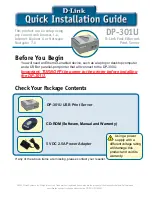
Note:
Approximately 20 seconds after the server is connected to AC power, the
power-control button becomes active.
2. When the prompt
<F1> Setup
is displayed, press F1. If you have set an
administrator password, you must type the administrator password to access the
full Setup utility menu. If you do not type the administrator password, a limited
Setup utility menu is available.
3. Select
System Settings
→
Integrated Management Module
→
Reset IMM to
Defaults
.
4. Wait several minutes while IMM initializes all of the default values.
5. Go back and check the Power Policy setting to verify that it is set to
Restore
(the default).
Attention:
If you set an administrator password and then forget it, there is no way
to change, override, or remove it. You must replace the system board.
Using the integrated management module
The integrated management module (IMM) is a second generation of the functions
that were formerly provided by the baseboard management controller hardware. It
combines service processor functions, video controller, and (when an optional
virtual media key is installed) remote presence function in a single chip.
The IMM supports the following basic systems-management features:
v
Active Energy Manager.
v
Alerts (in-band and out-of-band alerting, PET traps - IPMI style, SNMP, e-mail).
v
Auto Boot Failure Recovery.
v
A virtual media key, which enables remote presence support (remote video,
remote keyboard/mouse, and remote storage).
v
Automatic Server Restart (ASR) when POST is not complete or the operating
system hangs and the OS watchdog timer times out. The IMM might be
configured to watch for the OS watchdog timer and restart the server after a
timeout, if the ASR feature is enabled. Otherwise, the system administrator can
generate an NMI by pressing an NMI button on the system board for an
operating-system memory dump. ASR is supported by IPMI.
v
Boot sequence manipulation.
v
Command-line interface.
v
Configuration save and restore.
v
DIMM error assistance. The Unified Extensible Firmware Interface (UEFI)
disables a failing DIMM that is detected during POST, and the IMM lights the
associated system-error LED and the failing DIMM error LED.
v
Environmental monitor with fan speed control for temperature, voltages, fan
failure, and power supply failure.
v
Intelligent Platform Management Interface (IPMI) Specification V2.0 and
Intelligent Platform Management Bus (IPMB) support.
v
Invalid system configuration (CNFG) LED support.
v
Light path diagnostics LEDs to report errors that occur with fans, power supplies,
microprocessor, hard disk drives, and system errors.
v
NMI detection and reporting.
v
Operating-system failure blue screen capture.
v
PCI configuration data.
v
PECI 2 support.
Chapter 6. Configuration information and instructions
311
Summary of Contents for 7378
Page 1: ...IBM System x3400 M3 Types 7378 and 7379 Problem Determination and Service Guide...
Page 2: ......
Page 3: ...IBM System x3400 M3 Types 7378 and 7379 Problem Determination and Service Guide...
Page 40: ...22 IBM System x3400 M3 Types 7378 and 7379 Problem Determination and Service Guide...
Page 158: ...140 IBM System x3400 M3 Types 7378 and 7379 Problem Determination and Service Guide...
Page 166: ...148 IBM System x3400 M3 Types 7378 and 7379 Problem Determination and Service Guide...
Page 187: ...Chapter 5 Removing and replacing server components 169...
Page 192: ...174 IBM System x3400 M3 Types 7378 and 7379 Problem Determination and Service Guide...
Page 194: ...176 IBM System x3400 M3 Types 7378 and 7379 Problem Determination and Service Guide...
Page 196: ...178 IBM System x3400 M3 Types 7378 and 7379 Problem Determination and Service Guide...
Page 318: ...300 IBM System x3400 M3 Types 7378 and 7379 Problem Determination and Service Guide...
Page 352: ...334 IBM System x3400 M3 Types 7378 and 7379 Problem Determination and Service Guide...
Page 360: ...342 IBM System x3400 M3 Types 7378 and 7379 Problem Determination and Service Guide...
Page 361: ......
Page 362: ...Part Number 00KC028 Printed in USA 1P P N 00KC028...
















































